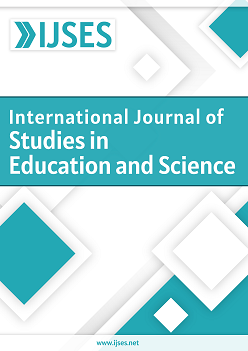A Comparative Investigation of the Mathematical Creativity of Filipino and Japanese Students
DOI:
https://doi.org/10.46328/ijses.22Keywords:
Mathematical creativity, Comparative study, Fluency, Flexibility, OriginalityAbstract
In order to produce individuals who can thrive in a society that is getting more and more digital, the education world deems it important to not only develop students’ computational skills but their creative thinking skills as well. Previous studies have likewise given premium to mathematical creativity as its positive correlation to mathematical achievement has been observed. This link between creativity and achievement and the undeniable gap between the mathematical achievement of East and Southeast Asian students drove the present study to analyze the gap in the light of mathematical creativity. This research explored the mathematical creativity of Filipino and Japanese students in terms of fluency, flexibility, and originality. A matched sample of one-hundred forty Filipino and Japanese Grade 7 students participated by completing non-routine mathematical tasks in a researcher-made instrument which was content-validated, pilot-tested, and subjected to reliability testing. Statistical tests applied to the test results revealed that the mathematical creativity of the Japanese students is significantly better than those of the Filipino students. To substantiate the quantitative findings, classroom observations were conducted, and textbooks and modules were analyzed. Finally, the study’s implications to mathematics teaching and learning were discussed.References
Rocena, L. A. M. & Joaquin, M. N. B. (2021). A comparative investigation of the mathematical creativity of Filipino and Japanese students. International Journal of Studies in Education and Science (IJSES), 2(1), 59-73.
Downloads
Published
Issue
Section
License
Articles may be used for research, teaching, and private study purposes. Authors alone are responsible for the contents of their articles. The journal owns the copyright of the articles. The publisher shall not be liable for any loss, actions, claims, proceedings, demand, or costs or damages whatsoever or howsoever caused arising directly or indirectly in connection with or arising out of the use of the research material.
The author(s) of a manuscript agree that if the manuscript is accepted for publication in the International Journal of Studies in Education and Science (IJSES), the published article will be copyrighted using a Creative Commons “Attribution 4.0 International” license. This license allows others to freely copy, distribute, and display the copyrighted work, and derivative works based upon it, under certain specified conditions.
Authors are responsible for obtaining written permission to include any images or artwork for which they do not hold copyright in their articles, or to adapt any such images or artwork for inclusion in their articles. The copyright holder must be made explicitly aware that the image(s) or artwork will be made freely available online as part of the article under a Creative Commons “Attribution 4.0 International” license.

This work is licensed under a Creative Commons Attribution-NonCommercial-ShareAlike 4.0 International License.





